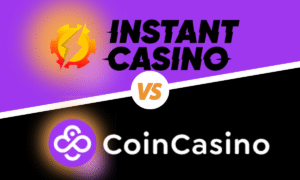Already heralded as a game changer for multiple industries, blockchain is emerging as a powerful technological force that promises to change the travel industry’s status quo.
For an industry as fragmented as travel, blockchain-based services are already isolating major pain points, working to resolve common challenges by focusing on streamlining processes and building a more equitable ecosystem that shuns gatekeepers. The technology’s impact is more than hypothetical, with several new businesses emerging to disrupt several nodes on the industry’s supply chain.
These six companies are working to improve key aspects of the travel ecosystem and establishing blockchain’s place in the industry.
1. Winding Tree: Displacing Online Booking Hubs
The major travel service aggregators that emerged across the internet like Expedia and Priceline have since come to dominate airfare bookings, but at a serious cost to both travelers and airlines. Bookings on these websites tend to include hefty fees and surcharges made possible by their largely unchallenged status as gatekeepers. Blockchain-based startup Winding Tree is already working to unseat these entrenched giants by challenging their role as industry middlemen.
With its LÍF token, Winding Tree seeks to connect travelers directly with service providers like airlines, hotels, and tour guides, minimizing associated fees for travelers all while reducing costs for service providers. The company’s clever use of smart contracts and the ERC827 protocol delivers better savings for all travel industry stakeholders while its nonprofit status assures there are no middlemen adding unnecessary fees to the booking process. (See more: Understanding Smart Contracts.)
2. Cool Cousin: Gaining Better Guidance
Identifying a region’s highlights and potential attractions is a big part of the planning process for travelers. Major names like Lonely Planet and TripAdvisor offer some guidance, but are hurt by issues stemming from their lack of transparency and profit-oriented models.
Launched in 2016 in Tel Aviv and today used by over 500,000 travelers worldwide, Cool Cousin – with its curated travel experience – seeks to provide a better alternative for tourists.
The company’s blockchain-based ecosystem incentivizes local guides to monetize their local knowledge to offer a more accountable and authentic tour opportunity for the application’s users.
With the CUZ token, this community of travelers and local “Cousins” participate in a completely decentralized travel agency whereby value flows between users instead of being extracted by intermediaries along a chain. The system’s feedback and ratings are more reliable due to the trustworthiness of the content and transparency inherent in blockchain-based systems.
Furthermore, for Millennial and Generation Z jetsetters who demand a more customized experience, Cool Cousin helps travelers narrow down the search process with on-demand guidance that fits their unique needs.
3. Webjet: Adding Assurances and Avoiding Inaccuracies
Inaccurate or lost hotel bookings add considerable stress and anxiety to a travel experience. Furthermore, customers usually have to take on fees across several layers of the supply chain while providers consistently extract value.
Thanks to blockchain’s immutable distributed ledger technology, Webjet, a prominent online travel agency, has built a new model designed to avoid these irritating booking experiences. (See also: What Is a Distributed Ledger?)
The system enhances the customer experience by recording all entries on the blockchain’s immutable ledger, which reduces the likelihood of mistaken or lost bookings and reduces the layers between sellers and consumers.
Moreover, the technology’s improved security features provide better protection for the ecosystem. Apart from building greater supply chain efficiencies and reducing costs for hotels, travelers ultimately benefit from lower cost booking alongside transparency and greater accountability.
4. Sandblock: Improving Loyalty’s Fungibility
In the hyper-competitive travel and tourism industry, loyalty rewards have gone through several iterations, but only the most recent offers a real departure thanks to blockchain.
Many frequent travelers belong to airline and hotel loyalty programs. However, spending points and miles often means jumping through multiple hoops to redeem rewards. Furthermore, despite high rates of participation in loyalty programs, many customers report a willingness to accept better deals from competing carriers and service providers if the price is right.
New entrant Sandblock is looking to radically change the loyalty landscape with its blockchain-based platform. The company’s system enables travel providers to create their own loyalty tokens, which can be exchanged not just for brand-specific rewards, but be used like real coins and even exchanged for fiat.
Users can also apply their tokens to redeem rewards across a variety of services beyond the company that awarded them, and can earn more by being an active participant in the community. For businesses, the reward is better data and transparency, and an ecosystem that actually returns value to them thanks to improved targeting and happier consumers.
5. Accenture: Striving Towards Shorter Lines
Spending hours waiting in lines at airports is an oft-cited example of the annoyances of traveling the globe. With the volume of air travelers expected to grow 50% over the next 10 years, airports are likely to face even greater congestion, adding to time spent in lines for security, customs, and passport control. Security needs are also trumpeted as the reason behind tighter controls and oversight, contributing to a frequent traveler’s headache.
To overcome these challenges and expedite the security process, consulting firm Accenture PLC (ACN) in conjunction with the World Economic Forum has developed the Known Traveler Digital Identity System.
This blockchain is designed to collect and host identifying information from frequent international travelers, enabling a freer flow of data between travelers and customs agents to smooth the clearance process. For travelers, this means gaining control over their digital identities with better security thanks to distributed ledger technology. Airports and airlines also benefit from accelerated processing and better security, helping shorten lines all while alleviating one of the biggest traveler pain points.
6. Travelchain: Making the Most of Data
Data has become a prized commodity in today’s economy, offering businesses numerous insights and advantages when used appropriately. Travelers generate massive amounts of data that are highly valuable to service providers, though that information is generally restricted to gatekeepers such as Expedia and Orbitz, which offer a faster booking process at a price. The result is an ecosystem that raises the costs for travelers and adds to the informational asymmetry for travel service providers.
New entrant Travelchain is looking to upend the paradigm with an open-source blockchain that seeks to remove intermediaries on the supply chain. Users are empowered to collect and monetize their travel data, keeping it safe from prying eyes and receiving tokens as compensation for sharing with travel service providers. These tokens can then be redeemed for services or money.
Participating companies can access more granular information about travelers, channeling these insights for more pinpointed promotion targeting. Apart from personalizing marketing, these companies can offer customized tours and promotions based on a traveler’s preferences, closing the entire ecosystem loop and delivering value to all stakeholders. (See also: Top Blockchain Startups to Watch in 2018.)
The Bottom Line
Traveling should be comfortable, cost-effective, and most importantly, enjoyable. While fees, booking irregularities, bad reviews, and long lines may be symptomatic of the current travel environment, blockchain is challenging this status quo with a host of new services designed to modernize and streamline the travel experience. Thanks to the formation of more equitable ecosystems constructed to reduce the presence of intermediaries, travelers and service providers can build more mutually fulfilling relationships that contribute to better overall value.
Investing in cryptocurrencies and Initial Coin Offerings (“ICOs”) is highly risky and speculative, and this article is not a recommendation by Investopedia or the writer to invest in cryptocurrencies or ICOs. Since each individual’s situation is unique, a qualified professional should always be consulted before making any financial decisions. Investopedia makes no representations or warranties as to the accuracy or timeliness of the information contained herein. As of the date this article was written, the author owns cryptocurrencies.






More Stories
SafeMoon Space – THE NEXT BIG DeFi. Last Chance To Buy/Reserve SMSP Token
The “Whirlwind” NFT Game And Dragon Pool Is The Highlight Of The Ecosystem Blockchain – Gaming
FRET: Future Real Estate Token That You Shouldn’t Miss Out On